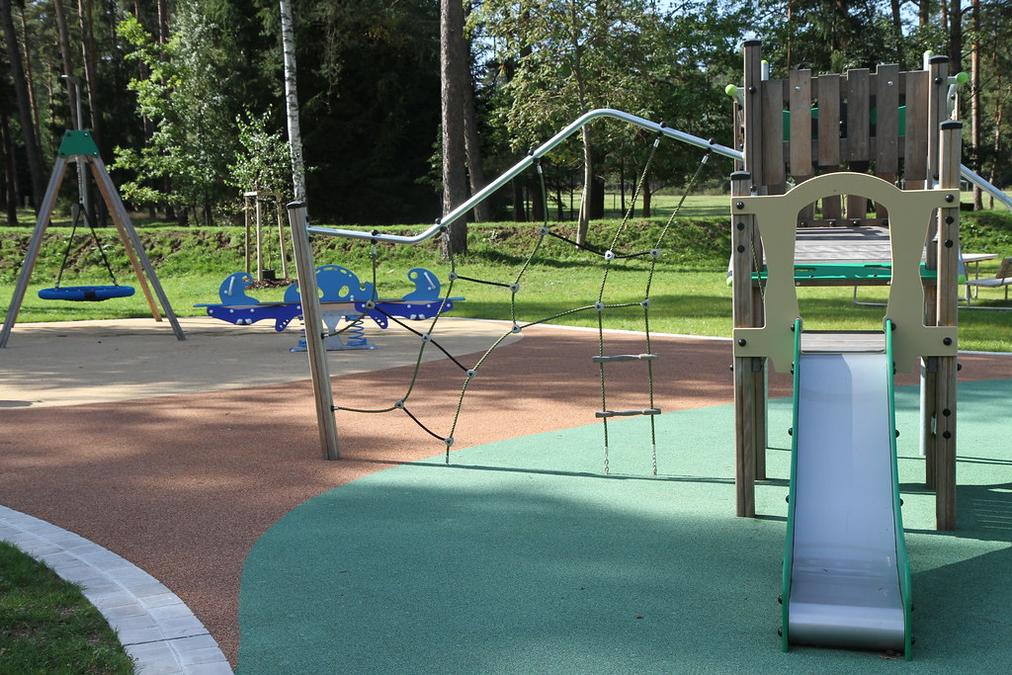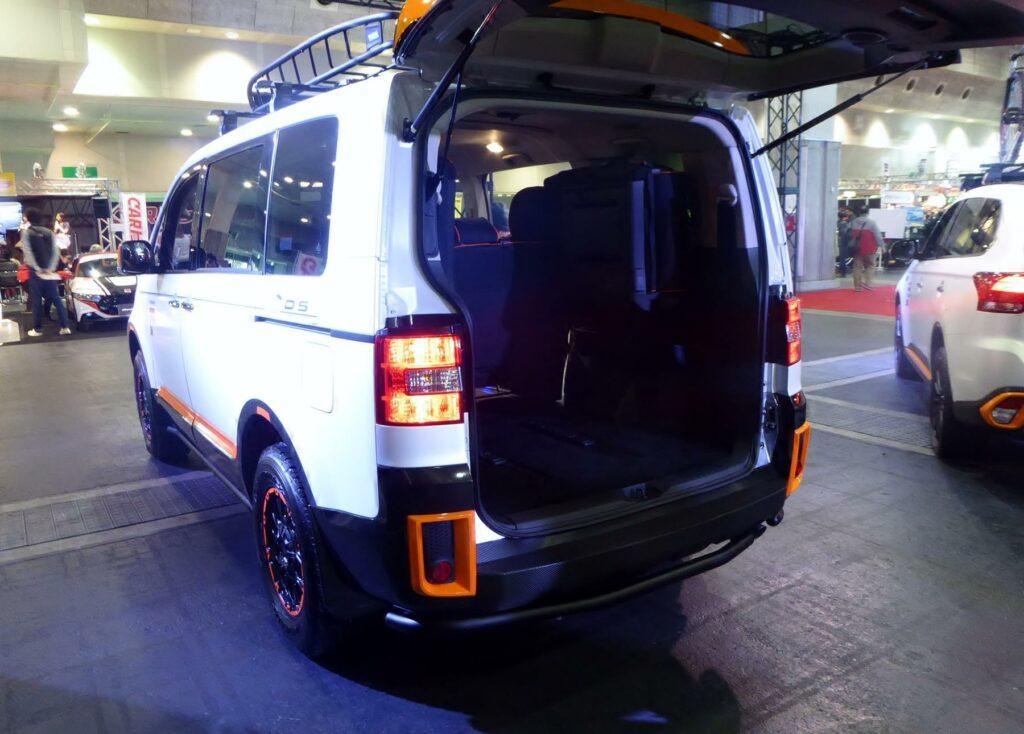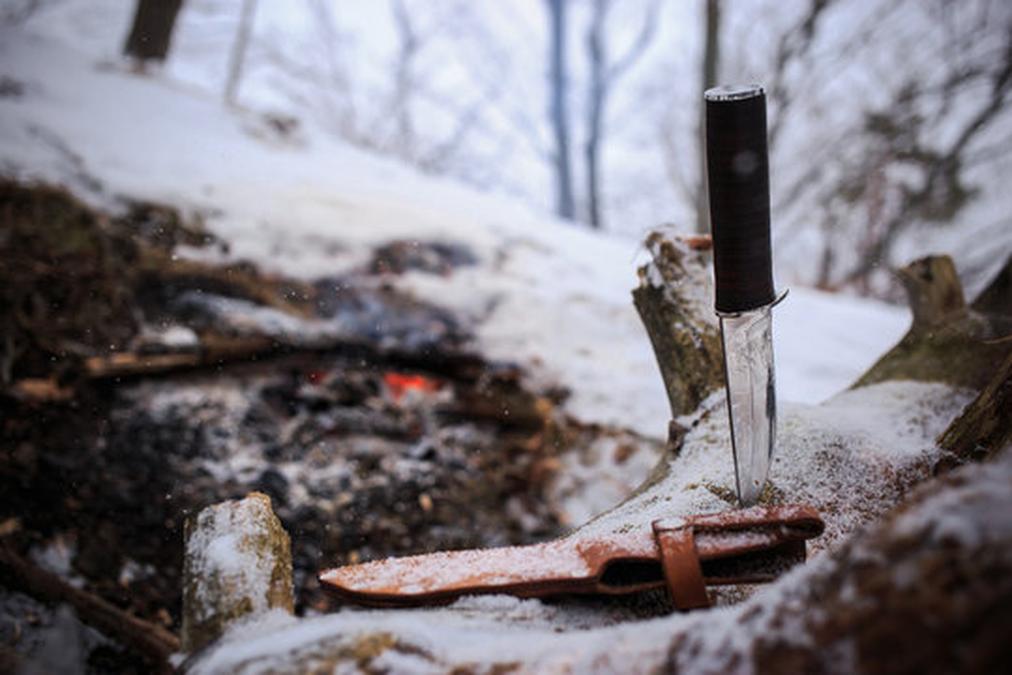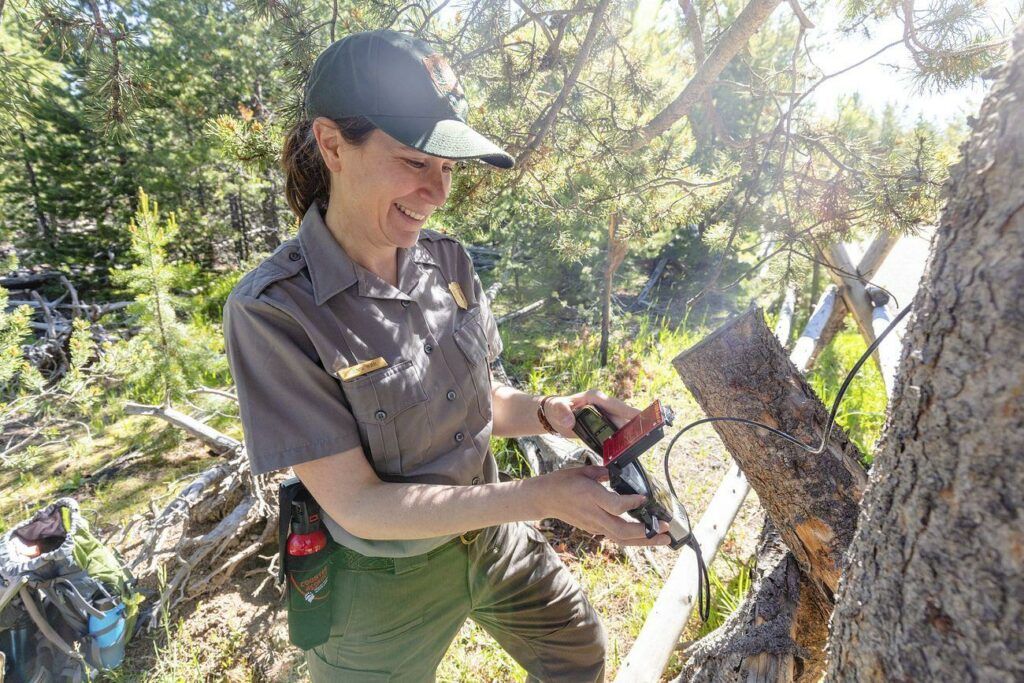Are you planning a camping trip but aren’t sure what gear to bring? Look no further than this guide for camping gear recommendations. Choosing the right gear is essential for a successful camping trip, and we’ve got you covered with the best recommendations for tents, sleeping bags, camp stoves, backpacks, and more. Whether you’re a seasoned camper or a beginner, this guide will help you choose the right gear for your needs.
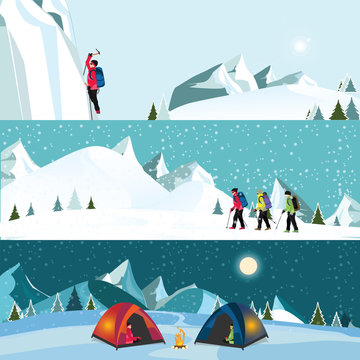
Types of Camping Gear
Camping gear is essential for a successful camping trip. Choosing the right camping gear can make the difference between a comfortable and enjoyable camping experience and a miserable one. Here are the most important types of camping gear to consider:

TentsA tent is the most important piece of camping gear, providing shelter and protection from the elements. There are many different types of tents available, including backpacking tents, family tents, and more. Some important factors to consider when choosing a tent include:
- Size: Consider the size of your group and choose a tent that has enough space for everyone.
- Weather resistance: Choose a tent that can withstand the weather conditions you’ll be camping in.
- Ventilation: Look for a tent with good ventilation to prevent condensation and keep you cool in warm weather.
- Ease of setup: Consider how easy it is to set up and take down the tent.

Sleeping BagsA sleeping bag is a crucial piece of camping gear that keeps you warm and comfortable while sleeping. There are many different types of sleeping bags available, including mummy bags, rectangular bags, and more. Some important factors to consider when choosing a sleeping bag include:
- Temperature rating: Choose a sleeping bag with a temperature rating suitable for the climate you’ll be camping in.
- Insulation type: Down insulation is warm and compressible, while synthetic insulation is more affordable and performs better in wet conditions.
- Size: Choose a sleeping bag that fits your body size and shape for maximum comfort.
Camp StovesA camp stove is an essential piece of camping gear that allows you to cook food and boil water. There are many different types of camp stoves available, including backpacking stoves, propane stoves, and more. Some important factors to consider when choosing a camp stove include:
- Fuel type: Choose a stove that uses a fuel type that is easily accessible at your camping destination.
- Burner type: Look for a stove with a burner type suitable for your cooking needs, such as a simmer burner for cooking soups and stews.
- Weight and size: Consider the weight and size of the stove, especially if you’ll be backpacking.

BackpacksA backpack is a necessary piece of camping gear that allows you to carry your gear on hikes and other outdoor adventures. There are many different types of backpacks available, including daypacks, overnight packs, and more. Some important factors to consider when choosing a backpack include:
- Capacity: Choose a backpack with a capacity suitable for the length of your trip and the amount of gear you’ll be carrying.
- Weight: Consider the weight of the backpack, especially if you’ll be backpacking.
- Comfort: Look for a backpack with padded shoulder straps, a waist belt, and other comfort features.
Other EssentialsThere are many other essential camping gear items to consider, such as camping chairs, portable coolers, and more. Some important factors to consider when choosing other camping gear items include:
- Durability: Choose gear that is durable and can withstand the wear and tear of camping.
- Size and weight: Consider the size and weight of the gear, especially if you’ll be backpacking.
- Comfort: Look for gear that is comfortable and can enhance your camping experience.
Choosing the Best Camping Gear: A Comprehensive Guide
Choosing the right camping gear is essential for a successful camping trip. Here are some important considerations to keep in mind when selecting the best gear for your needs:
Consider the Type of Camping Trip
The type of camping trip you’re planning will greatly influence the type of gear you need. If you’re planning a backpacking trip, you’ll need lightweight and compact gear that is easy to carry. If you’re planning a car camping trip, you can afford to bring larger and heavier gear for added comfort.
Consider the Weather and Environment
The weather and environment of your camping destination will greatly affect the type of gear you need to bring. If you’re camping in a cold climate, you’ll need warm sleeping bags, clothing and a tent with good insulation. On the other hand, if you’re camping in a hot climate, you’ll need lightweight and breathable gear to stay cool. Be sure to check the weather forecast and research the environment of your camping destination before choosing your gear.
Consider Personal Preferences and Budget
Personal preferences and budget are also important factors when selecting camping gear. Think about the activities you’ll be doing and what gear you’ll need. For example, if you plan on doing a lot of hiking, you’ll want to invest in a good pair of hiking boots. If you’re on a tight budget, you may need to prioritize certain gear items over others. Keep in mind that quality gear can be expensive, but it’s worth the investment in the long run.
Look for Quality and Durability
When choosing camping gear, it’s important to look for quality and durability. Cheap gear may be tempting, but it’s more likely to break or wear out quickly. Look for gear made from high-quality materials and from reputable brands with good reviews. Investing in quality gear may cost more upfront, but it will save you money in the long run by lasting longer and performing better.
Don’t Forget About Comfort
While it’s important to consider the practicality of your camping gear, don’t forget about comfort. You want to be comfortable during your camping trip, so look for gear that is both functional and comfortable. For example, look for sleeping bags and sleeping pads with good insulation and padding, and backpacks with padded shoulder straps and waist belts for added comfort.
By keeping these considerations in mind when choosing your camping gear, you’ll be well-equipped for a successful and enjoyable camping trip.

Sustainable Camping Gear: Minimizing Environmental Impact
Camping is a great way to connect with nature, but it’s important to remember that our outdoor adventures can have an impact on the environment. As outdoor enthusiasts, we have a responsibility to minimize our impact and preserve the natural world for future generations. One way to do this is by choosing camping gear that is sustainable and eco-friendly.
Why Choose Sustainable Camping Gear?
Sustainable camping gear is designed to minimize waste and pollution, reduce resource consumption, and minimize the environmental impact of camping. By choosing sustainable options, we can help to reduce our carbon footprint and preserve the natural world that we love to explore.
Types of Sustainable Camping Gear
There are many types of sustainable camping gear to choose from, including:
- Recycled gear: Many camping gear manufacturers are now using recycled materials to create their products. Look for gear made from recycled nylon, polyester, and other materials.
- Eco-friendly gear: Some camping gear is designed to minimize waste and pollution. For example, there are now biodegradable tents available on the market that break down naturally over time.
- Energy-efficient gear: Look for camping gear that is designed to use less energy, such as solar-powered lanterns and chargers.
- Fair trade gear: Some camping gear manufacturers are committed to fair labor practices and source their materials from ethical suppliers. Look for gear that is certified fair trade.
Considerations When Choosing Sustainable Camping Gear
When choosing sustainable camping gear, there are a few things to keep in mind:
- Price: Sustainable camping gear can be more expensive than traditional gear. Consider your budget and prioritize the items that are most important to you.
- Durability: Look for gear that is durable and will last for many camping trips. This will help to minimize waste and reduce the need for frequent replacements.
- Functionality: Choose gear that is appropriate for your needs and the environment you’ll be camping in. For example, a biodegradable tent may not be appropriate for a camping trip in a wet or humid environment.
By choosing sustainable camping gear, we can enjoy the great outdoors while also helping to protect it for future generations.

Personal Story
During a recent camping trip, my friend Sarah and I decided to test out our new backpacking tents. We had each purchased a different brand and were excited to see how they would hold up in the field. After a long day of hiking, we set up our tents and settled in for the night.
As the temperature dropped, I noticed that Sarah was shivering and seemed uncomfortable in her tent. I offered her my extra sleeping bag, but she declined, saying that her sleeping bag was rated for colder temperatures than mine. However, after a few hours of tossing and turning, she admitted that she was still cold and couldn’t get comfortable.
The next morning, we compared our sleeping bags and realized that while Sarah’s bag was rated for colder temperatures, it was not as high quality as mine. My bag had a higher fill power and better insulation, making it more effective at keeping me warm despite the lower temperature rating.
This experience taught us both an important lesson about the importance of quality when it comes to camping gear. It’s not just about the temperature rating or the price tag – it’s about the materials, design, and construction that determine how well the gear will perform in the field.
When choosing camping gear, it’s essential to consider not only the ratings and features but also the quality of the product. A low-quality sleeping bag can ruin a camping trip, even if it’s rated for the correct temperature range. Investing in high-quality gear will ensure a comfortable and enjoyable experience, even in challenging weather conditions.
Best Camping Gear Recommendations
Now that you know what to look for when choosing camping gear, here are our top recommendations for the best camping gear on the market.

Tents
Types of Tents
When choosing a tent, it’s important to consider the type of camping you’ll be doing. There are many different types of tents available, but the most popular are:
- Backpacking tents: These tents are lightweight and easy to pack, making them ideal for backpacking trips. They usually have a smaller interior space and are designed to be set up quickly and easily.
- Family tents: These tents are larger and more spacious, making them ideal for families or groups of friends. They usually have multiple rooms and can accommodate several people.
Best Backpacking Tents
- Big Agnes Copper Spur HV UL2: This tent is lightweight and easy to set up, and has plenty of interior space for two people. It also has a rainfly that extends over the vestibules for extra protection from the elements.
- Nemo Hornet 2P: This tent is one of the lightest backpacking tents on the market and is designed for easy and quick setup. It also has a spacious interior for two people and plenty of ventilation.
Best Family Tents
- Coleman WeatherMaster 10-Person Outdoor Tent: This tent has plenty of room for a large family or group of friends, with a spacious interior and multiple rooms. It also has a built-in LED lighting system and a screen room for added comfort.
- CORE 9 Person Extended Dome Tent: This tent has a spacious interior that can accommodate up to nine people. It also has a gear loft and multiple pockets for easy organization.

Sleeping Bags
Types of Sleeping Bags
When choosing a sleeping bag, it’s important to consider the temperature rating, insulation type, and size. There are many different types of sleeping bags available, but the most popular are:
- Mummy bags: These bags are designed to be lightweight and compact, making them ideal for backpacking trips. They are also designed to keep you warm in cold weather.
- Rectangular bags: These bags are designed to be more spacious and comfortable, making them ideal for car camping trips.
Best Mummy Bags
- The North Face Cat’s Meow Sleeping Bag: This sleeping bag is lightweight and designed for cold weather camping. It has a synthetic insulation that keeps you warm even when wet and a draft collar to keep out cold air.
- REI Co-op Magma 15 Sleeping Bag: This sleeping bag is designed for extreme weather conditions, with a high-quality down insulation that keeps you warm in cold temperatures.
Best Rectangular Bags
- Coleman Big Basin 15 Big and Tall Sleeping Bag: This sleeping bag is designed for larger individuals, with a spacious interior and a temperature rating of 15°F. It also has a built-in pillow and a machine-washable design for easy cleaning.
- Teton Sports Tracker Ultralight Double Sleeping Bag: This sleeping bag is designed for two people and has a temperature rating of 5°F. It also has a soft, microfiber lining and a compression sack for easy packing.

Camp Stoves
Types of Camp Stoves
When choosing a camp stove, it’s important to consider the type of camping you’ll be doing. There are many different types of camp stoves available, but the most popular are:
- Backpacking stoves: These stoves are lightweight and easy to pack, making them ideal for backpacking trips. They usually use small canisters of fuel and are designed for quick and easy cooking.
- Propane stoves: These stoves are larger and more powerful, making them ideal for car camping trips. They usually use larger propane tanks and are designed for more complex cooking.
Best Backpacking Stoves
- Jetboil Flash Camping Stove Cooking System: This stove is lightweight and compact, making it ideal for backpacking trips. It also has a quick and easy cooking system that boils water in just over 2 minutes.
- MSR PocketRocket 2 Ultralight Backpacking Stove: This stove is one of the lightest backpacking stoves on the market and is designed for easy and quick setup. It also has a high-quality flame control and a compact design.
Best Propane Stoves
- Camp Chef Explorer Double Burner Stove: This stove is large and powerful, making it ideal for car camping trips. It has two burners and can accommodate large pots and pans for more complex cooking.
- Coleman Classic Propane Stove: This stove is affordable and easy to use, making it a great option for beginners. It has two burners and a wind-blocking design for efficient cooking.

Backpacks
Types of Backpacks
When choosing a backpack, it’s important to consider the type of camping you’ll be doing. There are many different types of backpacks available, but the most popular are:
- Daypacks: These backpacks are designed for shorter hikes and day trips. They are usually smaller and more lightweight than other types of backpacks.
- Overnight packs: These backpacks are designed for longer hikes and overnight trips. They are usually larger and have more capacity for gear.
Best Daypacks
- Osprey Daylite Plus Daypack: This daypack is lightweight and has a comfortable, ventilated back panel. It also has a hydration sleeve and a front pocket for easy organization.
- Deuter Speed Lite 20 Backpack: This daypack is designed for easy and quick setup, with a lightweight and breathable design. It also has a hydration system compatibility and a front pocket for easy access.
Best Overnight Packs
- Osprey Atmos AG 65 Backpack: This backpack is designed for comfort and support on longer hikes, with a ventilated back panel and a comfortable hip belt. It also has a large main compartment and multiple pockets for easy organization.
- Gregory Baltoro 65 Backpack: This backpack is designed for heavy loads, with a comfortable suspension system and a large main compartment. It also has a hydration sleeve and a built-in rain cover for added protection.
Other Essentials
In addition to the above gear, there are many other essential camping gear items to consider. Here are some of our top recommendations:
- Camping chairs: A comfortable camping chair can make all the difference in your camping experience. Look for chairs that are lightweight and easy to pack, but also provide enough support for your back.
- Portable coolers: A portable cooler is essential for keeping food and drinks cold on longer camping trips. Look for coolers that are lightweight and easy to carry, but also have enough capacity for your needs.
- Headlamps: A headlamp is a practical and hands-free way to light your way in the dark. Look for headlamps that are lightweight and have a long battery life.
These camping gear recommendations will help ensure that you have a successful and enjoyable camping trip. Keep in mind that the best gear for you will depend on your personal preferences and the type of camping you’ll be doing.

Camping Gear Checklist
A camping gear checklist is essential to ensure you don’t forget any important items. Here’s a comprehensive checklist to help you pack and organize your gear:
Shelter
- Tent
- Tent stakes
- Tent footprint (optional)
Sleeping
- Sleeping bag
- Sleeping pad
- Pillow (optional)
Cooking
- Camp stove
- Fuel for stove
- Lighter or matches
- Cookware and utensils
- Cooler
- Food and snacks
- Water bottles or hydration system
Lighting
- Headlamp or flashlight
- Extra batteries
Health and Safety
- First-aid kit
- Insect repellent
- Sunscreen
- Hat and sunglasses
- Warm clothing
- Rain jacket or poncho
- Hiking boots or shoes
Backpack
- Backpack
- Waterproof cover for backpack
- Stuff sacks or compression bags for clothes and gear
Miscellaneous
- Camping chair
- Multi-tool or knife
- Maps and compass
- Binoculars (optional)
- Portable camp shower (optional)
- Hammock (optional)
This comprehensive camping gear checklist covers all the essential gear items you’ll need for your camping trip. Be sure to customize the list based on your personal needs and preferences. Packing and organizing your gear using stuff sacks or compression bags can help maximize space in your backpack and make it easier to find what you need.

Where to Buy Camping Gear
Choosing the right place to buy your camping gear from can be just as important as choosing the right gear itself. Here are some of our top recommendations for where to purchase quality camping gear:
1. REI
REI is a leading retailer of outdoor gear and has a wide selection of camping gear from top brands. They offer a satisfaction guarantee, so you can return any gear that doesn’t meet your expectations. REI also has a co-op membership program that offers exclusive discounts and benefits to members.
2. Backcountry
Backcountry is another popular online retailer of outdoor gear and has a wide selection of camping gear at competitive prices. They offer free two-day shipping on orders over $50 and have a 100% satisfaction guarantee. Backcountry also has a rewards program that allows you to earn points on purchases and redeem them for discounts.
3. Amazon
Amazon has a huge selection of camping gear from a variety of brands, and often offers fast and free shipping. They also have a customer review system that allows you to read reviews from other customers before making a purchase. However, it is important to note that not all sellers on Amazon are authorized dealers, so be sure to check the seller’s reputation before making a purchase.
4. Local Outdoor Gear Shops
Local outdoor gear shops are a great option for purchasing camping gear, as they often have knowledgeable staff who can help you choose the right gear for your needs. They may also offer repair services for damaged gear and provide opportunities for you to test out gear before purchasing. Supporting local businesses also helps to strengthen your community.
When choosing where to buy your camping gear, it’s important to consider factors such as price, selection, customer service, and reputation. By choosing a reputable retailer and purchasing quality gear, you can ensure a successful and enjoyable camping trip.
Conclusion
In conclusion, selecting the right camping gear is a crucial aspect of planning a successful and enjoyable camping trip. By taking into account the type of camping trip, weather conditions, personal preferences, and budget, you can make informed decisions when choosing camping gear. Our guide has provided you with top recommendations for the best camping gear on the market, ensuring that you invest in high-quality products that will last for many camping trips to come.
Remember to also consider sustainability when selecting your gear, and opt for eco-friendly options when possible. By doing so, we can all do our part in preserving the natural beauty of our camping destinations for future generations to enjoy.
We hope that our comprehensive guide to camping gear recommendations has been informative and helpful. Don’t forget to check out our other content for more tips and advice on outdoor recreation. So what are you waiting for? Grab your gear, hit the trail, and immerse yourself in the beauty of the great outdoors!
FAQs
Who should use this camping gear guide?
Anyone planning a camping trip who wants to ensure they have the best gear for their needs.
What types of camping gear are essential?
Tents, sleeping bags, camp stoves, backpacks, and other essentials are all important for a successful camping trip.
How do I choose the best camping gear?
Consider the type of camping trip, weather and environment, personal preferences and budget, quality and durability, and comfort.
What if I’m on a tight budget?
Prioritize the most important gear items and look for affordable but high-quality options.
How can I reduce my environmental impact while camping?
Choose sustainable camping gear made from recycled materials, eco-friendly materials, or energy-efficient designs.
What if I’m new to camping and don’t know what gear to buy?
Start with the basics and invest in quality gear that will last for many camping trips to come.
As an avid outdoorsman with over 20 years of experience in camping and hiking, I have extensive knowledge of the best gear and techniques to make any camping trip a success. My experience includes backpacking through remote wilderness areas, camping in extreme weather conditions, and leading group camping trips for youth organizations. I have also researched and studied the latest trends and technologies in camping gear, including materials and manufacturing processes, through various industry publications and online sources. Through my experience and research, I have developed a deep understanding of the importance of choosing the right gear for each individual camping trip, and how it can greatly impact the overall enjoyment and safety of the experience.

